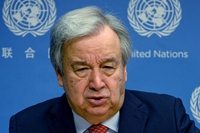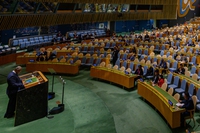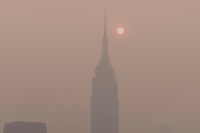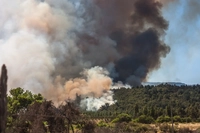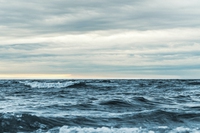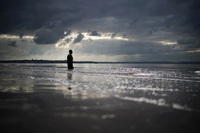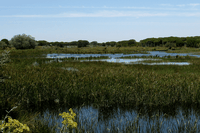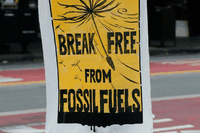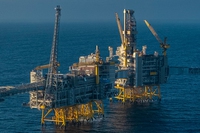
Rosebank would breach UK’s climate targets, new analysis reveales
Rosebank and other fields would push the UK’s oil and gas industry almost 40 percent past its carbon budget
Climate change is the defining issue of our time. Many have identified the consequences of global warming as the gravest threat that countries, the international community and planet Earth face over the course of this century. Global warming, i.e. the rise in global average temperatures, is caused by greenhouse gases released into the atmosphere – such as carbon dioxide (CO2) and methane (CH4) – produced by a number of human activities: deforestation, the burning of fossil fuels like oil and coal, and intensive farming. The consequences of this process are known as climate change. Due to the ongoing climate crisis we’re witnessing the melting of ice sheets and glaciers, sea levels rising, desertification and biodiversity loss. In order to face all these challenges, over 170 countries adopted the Paris Agreement at the COP21 climate change conference held in the French capital in 2015. Follow the latest updates, information and news about international efforts to slow down global warming and its devastating effects.
Rosebank and other fields would push the UK’s oil and gas industry almost 40 percent past its carbon budget
UN Secretary-General António Guterres said the era of global warming has ended and “the era of global boiling has arrived.”
The UN General Assembly (UNGA) on Wednesday, 29 March 2023, adopted a resolution seeking the International Court of Justice (ICJ), the UN’s chief judicial organ, which is also referred to as the World Court, for an advisory opinion on the duties of States concerning climate change. This decision marks the first time the World Court
Canada’s wildfire season this year is impacting air quality way beyond the borders of the North American state, reaching as far as Europe.
Wildfires in central and southern Chile, caused by extreme temperatures and drought, have already burned over 270,000 hectares of land.
Ocean heat content in the upper layers of our seas reached another record high in 2022, according to an international study published in January.
Increasing global average temperatures cause sea levels to rise and threaten the homes and livelihoods of many coastal communities in northern Europe.
After a landslide led to twelve deaths on the island of Ischia, questions have been raised about the impacts of illegal building, tourism, and climate change.
Santa Olalla, the last permanent lagoon in the park, has disappeared under the pressure of drought, overexploitation, and illegal wells.
France has banned some fossil fuel ads, but the ban’s limitations – including allowances for natural gas and financial advertising – have led to criticism.
